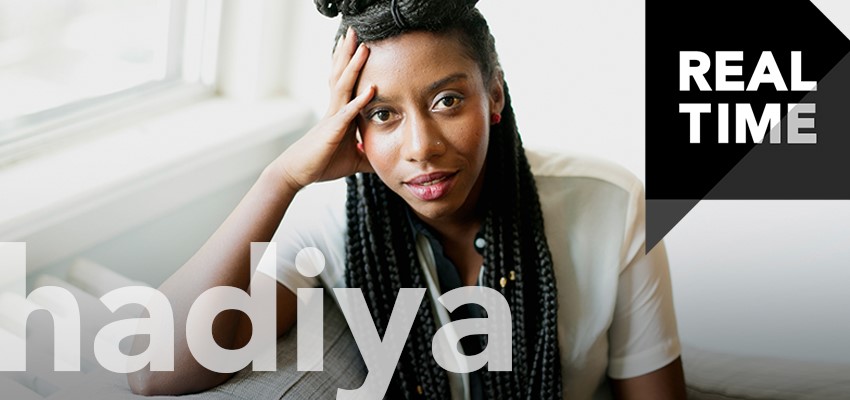Acknowledging a problem starts with honest reflection and dialogue. As part of Black History Month in Canada, Episode 12 of REAL TIME features a much-needed conversation about confronting and addressing bias in our everyday lives and how to become a better ally.
We were honoured to speak with lawyer, researcher and award-winning writer, Dr. Hadiya Roderique – best known for her Globe and Mail piece Black on Bay Street, which outlined her experiences as a young Black woman working in a Bay Street law firm.
Below are a few excerpts of discussions we had with Dr. Roderique for this month’s episode. To hear the conversation in its entirety, please click below.
What is unconscious bias and how can we recognize it in our own lives?
Dr. Roderique: I would define it as social stereotypes and patterns and thought processes that guide our decisions without us realizing it. I think a lot of people associate racism with there’s “capital R” racism and then there’s not being a racist. They associate “capital R” racism with hoods and people using slurs and violence, and you’re either that or you’re not racist, especially in Canada. We compare ourselves to the States a lot in this idea of Canadian exceptionalism.
People fail to recognize that there’s a lot of gray. It isn’t just Black or White, racist or not. There’s a lot of different actions and different things you can do that you might not realize are enacting on these prejudices or stereotypes that you hold. It’s not that you’re someone reviewing resumes, and you’re like, “Black resume, no, no, no, no,” but it’s the fact that maybe you didn’t notice that you were a harsher judge of their education or experience without realizing where that judgment was coming from, or you see a particular type of experience and you assume X about it, when you assume Y when it’s a White person having that same kind of experience.
What can we do to minimize the impact of unconscious bias to our decision making?
Dr. Roderique: What I want those populations to think about is changing processes so that people can’t be biased within them. I don’t think three one-hour sessions of unconscious bias training is going to do much to solve our problems about racism. What you want to do is have a system so that someone cannot enact their racist ideals or thoughts within that system. Things like work allocation, what’s your work allocation process? How do managers give out work? Because often the kind and caliber of projects that you do are what sets you up for success and sets you up for ascension and promotion. If certain people are getting all of the good files, or in the past, as they were called the blue files and the pink files, the men got the blue files, the women got the administrative pink files, what are your Brown files and your White files? Thinking about that and thinking about ways you can change your processes to interrupt bias.
The episode also includes personal experiences from three Black REALTORS® and their insights on bias and racism:
“We see racism or racial bias primarily in our rental markets, when certain ethnicities are denied offers to lease without any reason or explanation. If you have ever represented a minority tenant in at least one transaction, then it’s apparent of the racism prevalent within our communities.” Bethany King
“It’s our committees and boards that govern where we’re going to go as an association. For me, it was important that we start to incorporate that as part of our philosophy, In order to do that, I thought that creating this task force, which we met for the first time in September, and we’ve met a few times since, is going to be our first step in recognizing what actions we as an association need to do to ensure that we are building and developing and fostering a community of inclusion, a sense of belonging for our members.” Chris Peters
“You are going to work harder as a minority, and you will definitely work harder as a minority and a female, it will be the best career and it’ll be so worth it as long as you align yourself and create your tribe in real estate, in terms of people that look like you, that have the same values, characteristics as you, and just build on that together.” Jasmine Lee
Catch the full episode and be sure to subscribe to REAL TIME on your favourite podcast app. Don’t miss next month’s episode where we welcome Tiffany Pratt to talk easy ways to bring wellness into our homes.

